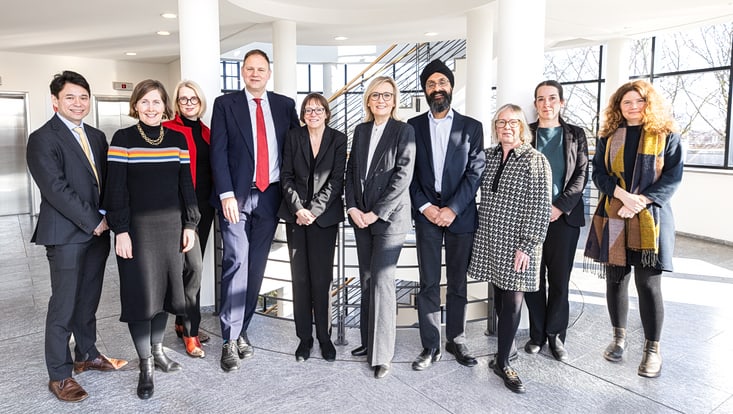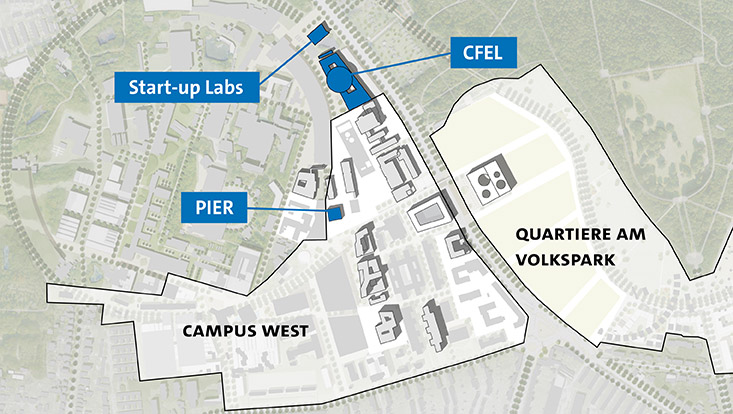Pilot project in educational science€10,000 for Experimental Space for Didactic Innovation
12 July 2023, by Newsroom editorial office

Photo: UHH/Esfandiari
In the upcoming 18 months, the Stifterverband (a German association of corporations and foundations) is supporting a pioneering digitalization project at Universität Hamburg. The concept is being realized within the scope of a nationwide university network for future-oriented learning spaces.
Digitalization is fundamentally changing learning and teaching at universities. The expectations for digital and analog equipment and facilities are complex and require universities to adapt in the most various of areas.
This is why Universität Hamburg has applied to take part in the Community of Practice: Zukunftsorientierte Lernräume run by the Stifterverband and the Dieter Schwarz Foundation. Christina Schwalbe, an expert for digital transformation and head of the office of digital teaching in the Faculty of Education, will now be one of 5 “challengers”—an employee of an academic institution who wishes to implement an outstanding concept—with her own pilot project. The challengers each receive €10,000 for the project proposals they submitted.
Together with 10 experts, or employees of universities who have already realized concepts and wish to share their expertise, they will form a network to jointly address the challenges in the field of learning architecture and to share experiences and knowledge.
Experimental lab for didactic innovation
In the funded Universität Hamburg project, the Faculty of Education intends to build a digital learning landscape that can also be used as an experimental place for didactic innovation. The space is conceived as a hybrid learning place that dissolves the boundaries between analog and digital learning and teaching. “In fact, physical and digital rooms should be made available that each facilitate completely different types of learning: in person, with or without digital tools, in totally different hybrid settings, completely digital, etc.” explains Christina Schwalbe, the project’s initiator.
A total of 6 types of rooms are planned. For example, there are plans for a communication space in which flexible furnishings should inspire and encourage communication and exchange in team meetings and workshops. The digital production lab, on the other hand, is for practical projects and trials with new technology, while a co-working space for individual and co-creative learning will provide quiet workspaces and soundproof rooms facilitating participation in digital activities. Then there is a think tank for concentrated quiet group work, a lecture lab for discussions and talks, and a collaborative learning lab designed as a long-term seminar room with a focus on collaborative work.
Developing interest in experimentation and innovation
The members of the faculty can contribute actively to shaping these teaching and learning spaces: “By developing participatory structures and an accompanying teaching lab, which is currently being planned, teachers and students are being encouraged and supported as they cultivate a experimentation and innovation-friendly attitude towards developing and trying out promising teaching and learning concept,” says Schwalbe. For the faculty, she continues, these processes are especially interesting from an academic perspective because the spatial changes are closely connected to innovation and development processes in teaching and learning. Thus, according to Schwalbe, there are new didactic possibilities that could also unfold their potential for school-based and extracurricular learning.
Hybrid learning spaces of the type now being developed in educational science are among one of the central areas of activity in the studies and teaching area in the University’s digitalization strategy.


